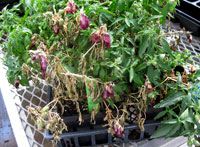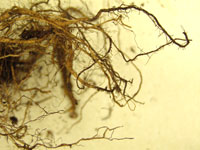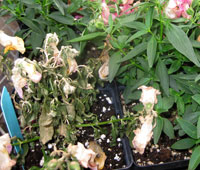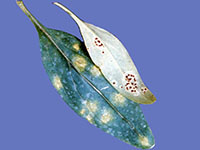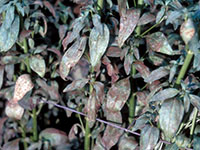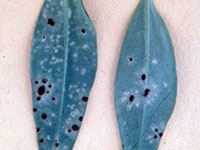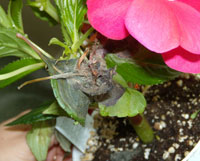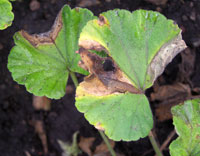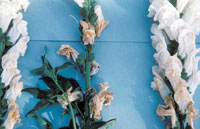Extension > Garden > Diagnose a problem > What's wrong with my plant? > Annuals and Perennials > Snapdragon > Leaves wilt and turn brown
Snapdragon > Leaves > Leaves wilt and turn brown
1 of 3
Root Rot
Pythium spp., Rhizoctonia solani, Thielaviopsis basicola
- Leaves turn yellow to tan and wilt
- Plants may be stunted
- The base of the stem may turn brown and crack
- Roots have brown to black sunken areas and lack root hairs
- The outer root tissue may be easily removed leaving behind thin, stringy root cores
- Lab test necessary to determine which pathogen is causing root rot
- More information on root rot
2 of 3
Snapdragon Rust
Puccinia antirrhini
- Yellow spots or blotches can be seen on the upper surface of infected leaves
- Raised brown pustules form on lower leaf surface primarily and grow in concentric rings with age
- Powdery reddish brown spores rub off on hands and tools
- Severely infected leaves wilt and die
- Plants can be stunted and may fail to bloom
- Disease develops during cool (below 60°F) weather
- More information on Snapdragon Rust
3 of 3
Gray Mold
Botrytis cinerea
- Brown spots or blotches on leaves or stems
- Brown spots or blotches on flowers; flowers drop off prematurely
- As disease progresses, entire leaves, flowers and shoots turn brown
- Gray fuzzy mold develops on rotted tissue under humid conditions
- Disease develops during cool, wet weather
- More information on Gray Mold



